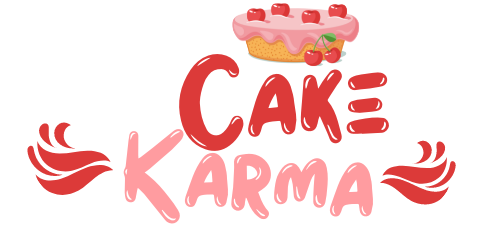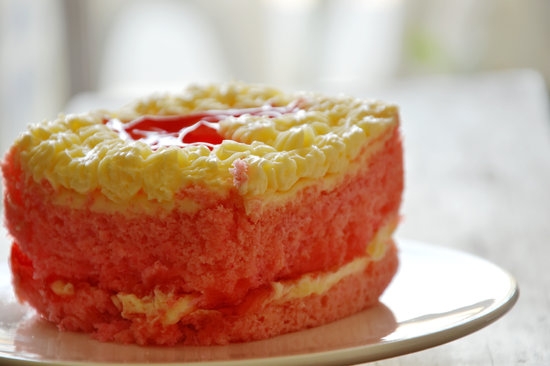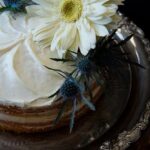What skills do you need to be a cake decorator? Cake decorating is not just about creating beautiful designs on a cake; it requires a unique set of skills to succeed in this creative and intricate field. From technical abilities like piping and fondant work to creative skills for designing visually appealing decorations, cake decorators must possess a diverse range of talents to excel in their craft.
The role of a cake decorator goes beyond just making cakes look good; it involves understanding clients’ preferences, working with precision and attention to detail, managing time effectively, and adapting to changing trends in the industry. Whether it’s creating elaborate wedding cakes or whimsical birthday treats, cake decorators need to have a wide array of skills to bring their confectionery creations to life.
In this article, we will delve into the specific technical and creative skills required for cake decorating, the importance of attention to detail and time management, the significance of clear communication with clients, the need for patience and perseverance when faced with challenging designs, the ability to adapt to different requests and trends, and the importance of continuous learning in staying competitive in the industry.
Aspiring cake decorators can use this guide to understand what it takes to succeed in this sweet and artistic profession.
Technical Skills
Piping Skills
One of the essential technical skills needed to be a successful cake decorator is proficient piping. Piping involves using a pastry bag and various tips to create intricate designs, borders, and lettering on cakes. Mastering different piping techniques, such as shells, rosettes, and basket weave patterns, requires precision and practice. A skilled decorator can transform a plain cake into a work of art with the right piping skills.
Icing Techniques
Another crucial technical skill for cake decorators is mastering different icing techniques. Whether it’s buttercream or royal icing, knowing how to apply smooth layers, create textured finishes, or sculpt shapes with icing is essential. Understanding the consistency of the icing and how to use tools like spatulas and offset knives for precise application is key to achieving professional-looking decorations on cakes.
Fondant Work
Working with fondant is another technical skill that sets experienced cake decorators apart. Fondant allows decorators to sculpt 3D figures, cover cakes smoothly for a flawless finish, and create elaborate decorations. Knowing how to roll out fondant without tearing it, smoothing it over cakes seamlessly, and embellishing with details like ruffles or drapes requires patience and practice. Mastering fondant work adds versatility and elegance to a decorator’s repertoire.
Creative Skills
As a cake decorator, having technical skills is essential, but equally important are the creative skills needed to design and execute visually appealing cake decorations. To excel in this aspect of the job, decorators must possess a keen eye for design, color theory knowledge, and the ability to think outside the box. Here are some creative skills that are crucial for becoming a successful cake decorator:
- Design Sense: A good cake decorator should have a strong sense of design to create visually stunning cakes. Understanding composition, balance, and symmetry are key elements in creating attractive cake decorations.
- Color Coordination: Knowing how to mix and match colors effectively is another important skill for cake decorators. From selecting the right hues for floral decorations to creating gradient effects with icing, having an understanding of color theory can make a significant difference in the visual impact of a cake.
- Innovation: In a competitive industry like cake decorating, being innovative and staying updated with current trends is crucial. Cake decorators often need to come up with unique ideas to stand out from the competition and attract customers.
Additionally, creativity in problem-solving is also valuable for cake decorators when faced with challenges such as unexpected client requests or troubleshooting decoration techniques. By honing their creative skills, aspiring cake decorators can elevate their craft and create memorable cakes that leave a lasting impression on clients.
Remember that while technical skills provide the foundation for cake decorating, it is the creative touch that truly sets apart exceptional decorators from the rest. By combining technical expertise with creativity, aspiring decorators can carve out a successful career in this dynamic and exciting field.
Attention to Detail
Cake decorating is a meticulous art that requires a high level of precision and attention to detail. The ability to carefully execute intricate designs and patterns is essential for creating visually stunning cakes that are not only beautiful but also delicious. Attention to detail in cake decorating involves ensuring that every element of the design, from the color scheme to the placement of decorations, is executed with precision.
One of the key aspects of attention to detail in cake decorating is precision in measurements and placements. Whether it’s piping delicate buttercream flowers or arranging sugar paste figurines, each element must be measured and placed with utmost care to achieve a harmonious overall design. Even the slightest deviation can throw off the balance of the cake decoration, making attention to detail crucial in maintaining consistency and aesthetic appeal.
In addition to precision, attention to detail in cake decorating also involves focusing on quality control. This means carefully inspecting the finished product to ensure that there are no imperfections or flaws that could detract from the overall presentation. By paying close attention to every aspect of their work, cake decorators can ensure that their creations are not only visually striking but also meet the highest standards of quality.
| Aspect | Importance |
|---|---|
| Precision in measurements | Ensures harmony in design |
| Quality control | Maintains high standards |
Time Management
Setting Priorities and Deadlines
One key aspect of effective time management in cake decorating is setting priorities and deadlines for each project. This involves understanding the scope of work required for each order, breaking it down into manageable tasks, and allocating enough time for each step. By creating a timeline with clear milestones, cake decorators can monitor their progress, identify potential bottlenecks, and make necessary adjustments to ensure timely completion.
Managing Workload and Resources
Another crucial element of time management in cake decorating is efficiently managing workload and resources. This includes scheduling orders based on their complexity and deadlines, allocating sufficient time for preparation, baking, decorating, and delivery. Additionally, decorators need to optimize their workspace layout, tools, and ingredients to streamline the process and minimize delays. By balancing workload effectively and utilizing available resources efficiently, decorators can enhance productivity while maintaining quality standards.
Dealing With Unexpected Challenges
Despite careful planning and organization, unforeseen challenges may arise during the cake decorating process. It is essential for decorators to have contingency plans in place to address unexpected issues such as equipment malfunctions, ingredient shortages or design alterations. Flexibility and quick problem-solving skills are valuable assets in handling these situations without compromising the project timelines. By staying adaptable and resourceful in the face of challenges, cake decorators can maintain their reputation for reliability and professionalism.
Overall, effective time management plays a critical role in the success of cake decorators by allowing them to deliver exceptional creations consistently while meeting client expectations. By honing their planning skills, setting clear priorities, managing resources efficiently.
and being prepared for unexpected obstacles, decorators can enhance their productivity, creativity
- Skill
- Adaptation
- Creative
Communication Skills
Effective communication skills are essential for any cake decorator to succeed in the industry. When working with clients, it is crucial to understand their needs, preferences, and expectations for the cake design. Clear communication helps to ensure that the decorator can bring the client’s vision to life accurately. Whether discussing color schemes, theme ideas, or specific design elements, being able to communicate clearly and actively listen to clients is key.
In addition, good communication skills also involve managing expectations appropriately. It is important for a cake decorator to set realistic timelines, pricing details, and clarify any limitations upfront with the client. Being transparent about what can be achieved within the given constraints helps build trust and avoid misunderstandings down the line. Moreover, effective communication can also include providing updates throughout the decorating process, seeking feedback from clients, and making any necessary adjustments along the way.
Overall, clear communication not only helps in understanding client requirements but also plays a vital role in building strong relationships and ensuring customer satisfaction. By honing their communication skills, cake decorators can establish themselves as reliable professionals who deliver exceptional results while meeting client expectations effectively.
| Aspect | Importance |
|---|---|
| Understanding Client Needs | High |
| Setting Realistic Expectations | Medium |
| Building Client Relationships | High |
Patience and Perseverance
To excel in the field of cake decorating, decorators must cultivate these qualities to ensure the quality of their creations. Here are some ways in which patience and perseverance play a crucial role in achieving success as a cake decorator:
- Striving for perfection: Patience allows decorators to take the time needed to perfect their craft, whether it’s smoothing out icing or sculpting intricate fondant details.
- Handling setbacks: Perseverance is key when facing challenges like collapsed cakes or color mishaps, as decorators must be able to problem-solve and find creative solutions.
- Managing demanding clients: Patience comes into play when dealing with clients who have specific requests or high expectations, requiring decorators to remain calm and professional throughout the process.
By honing their abilities to be patient and persistent, cake decorators can elevate their skills and produce stunning works of edible art that leave a lasting impression on clients. These qualities not only contribute to the success of individual projects but also build a reputation for reliability and professionalism in the competitive world of cake decorating.
Adaptability
Being a successful cake decorator not only requires technical and creative skills but also the ability to adapt to different client requests and changing trends in the cake decorating industry. Adaptability is crucial in this field as clients often have specific preferences and themes for their cakes, requiring decorators to be versatile in their designs. Whether it’s a traditional wedding cake or a trendy drip cake, being able to adapt to various styles is essential for satisfying client needs.
In addition to accommodating client requests, staying abreast of evolving trends in the cake decorating industry is also important for decorators. Trends in cakes can change rapidly, from color schemes to popular designs, and decorators must be willing to adapt their skills accordingly. Being able to incorporate new techniques and styles into their repertoire can set decorators apart and attract a wider range of clientele who are looking for contemporary designs.
Moreover, the ability to adapt goes beyond just aesthetic preferences. Cake decorators must also be flexible when it comes to logistical challenges that may arise during projects, such as last-minute changes or unforeseen circumstances. By having a mindset of adaptability, decorators can tackle any obstacles that come their way with creativity and problem-solving skills, ensuring successful outcomes for their clients.
Continuous Learning
One way for cake decorators to stay competitive in the field is by attending workshops, seminars, and classes focused on cake decorating. These opportunities provide valuable hands-on experience, allow decorators to learn from industry experts, and expose them to new methods and trends in the world of cake design. By expanding their knowledge base through continuous learning, decorators can enhance their skills and offer unique and innovative creations to their clients.
In addition to formal education opportunities, self-learning through online tutorials, books, and experimentation with different techniques can also help cake decorators improve their craft. By seeking out inspiration from various sources and being open to trying new approaches, decorators can push the boundaries of their creativity and develop a signature style that sets them apart in the industry.
Ultimately, a commitment to continuous learning not only ensures that decorators stay relevant in a competitive market but also allows them to grow and evolve as artists.
Conclusion
In conclusion, the role of a cake decorator encompasses a blend of technical, creative, and interpersonal skills that are essential for success in the field. From mastering techniques like piping, icing, and fondant work to unleashing creativity in designing visually stunning cake decorations, aspiring decorators must develop a diverse skill set to excel in their craft.
Attention to detail is paramount in ensuring precision and perfection in every creation, while effective time management is vital for meeting project deadlines without compromising on quality.
Moreover, communication skills play a crucial role in understanding clients’ preferences and delivering personalized cake designs that exceed expectations. The virtues of patience and perseverance are equally important when tackling intricate designs or facing challenges during the decorating process.
Adaptability to evolving trends and client demands is key to staying relevant in the competitive industry of cake decorating. Continuous learning and skill development are encouraged to keep abreast of new techniques and innovations that can enhance one’s capabilities as a cake decorator.
In essence, successful cake decorators possess a combination of technical expertise, creative flair, attention to detail, time management proficiency, strong communication skills, patience, adaptability, and a commitment to continuous learning. For those aspiring to pursue a career in cake decorating or looking to enhance their existing skills in the field, honing these abilities is crucial for achieving professional growth and artistic fulfillment.
By cultivating these key skills and embracing lifelong learning opportunities, individuals can unlock their full potential as accomplished cake decorators capable of creating edible works of art that delight both clients and recipients alike.
Frequently Asked Questions
What Makes a Good Cake Decorator?
A good cake decorator possesses creativity, attention to detail, patience, and a steady hand. They should have a passion for baking and decorating, as well as an eye for design. Excellent color coordination and consistency in skills are also key traits.
What Qualifications Do I Need to Be a Cake Decorator?
To become a cake decorator, you don’t necessarily need formal qualifications, but some form of training or certification is beneficial. Many aspiring cake decorators attend culinary school or take specialized courses in pastry arts. Hands-on experience through internships or apprenticeships can also help you develop the necessary skills.
What Are the 7 Different Cake Decorating Techniques?
The 7 different cake decorating techniques include piping, fondant work, buttercream frosting techniques, using edible decorations like sprinkles or edible glitter, airbrushing designs onto cakes, creating sugar flowers or figurines out of gum paste or fondant, and stenciling designs onto cakes. Each technique requires practice and precision to master effectively.

Welcome to our cake decorating blog! My name is Destiny Flores, and I am the proud owner of a cake decorating business named Cake Karma. Our mission is to provide delicious, beautiful cakes for all occasions. We specialize in creating custom cakes that are tailored specifically to each customer’s individual needs and tastes.





